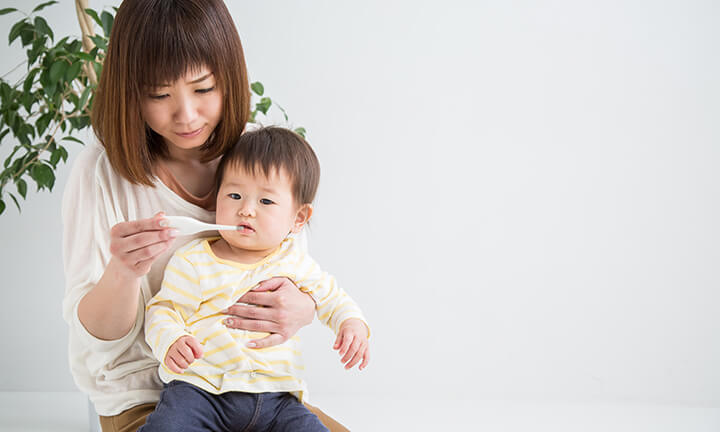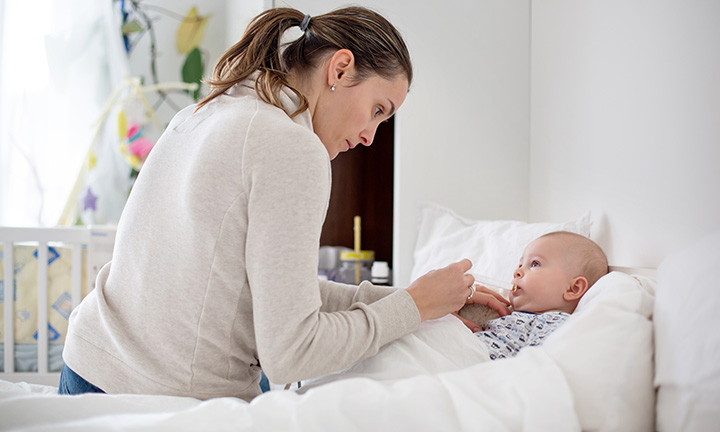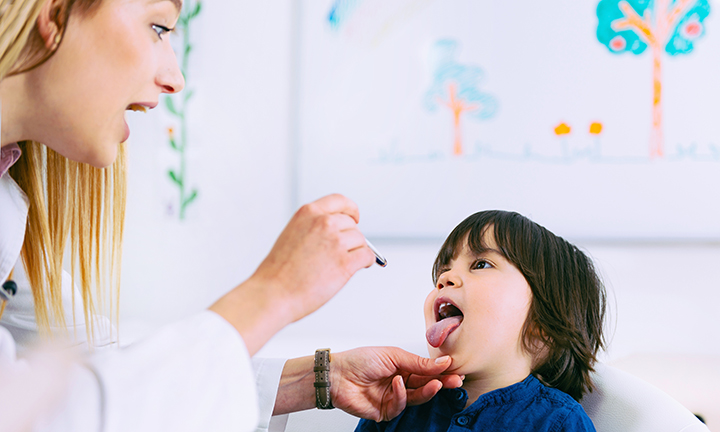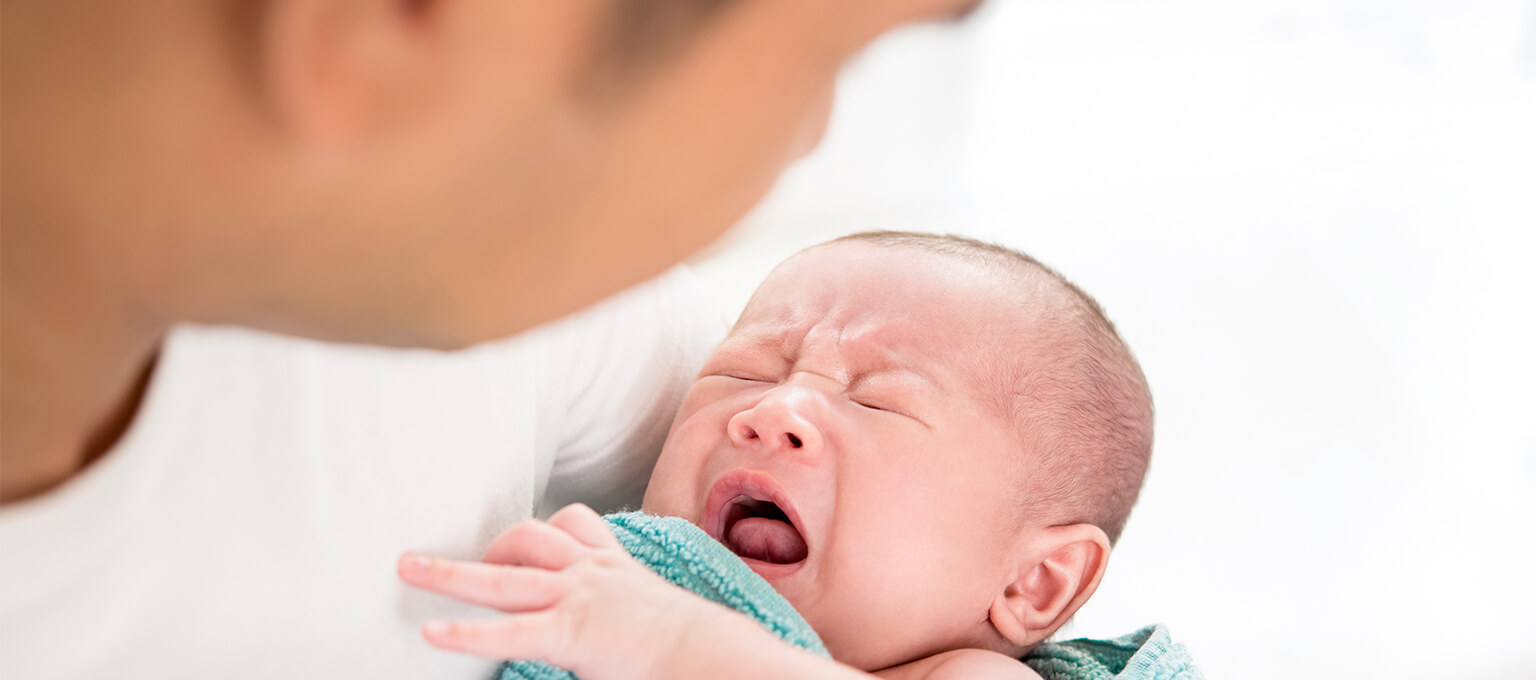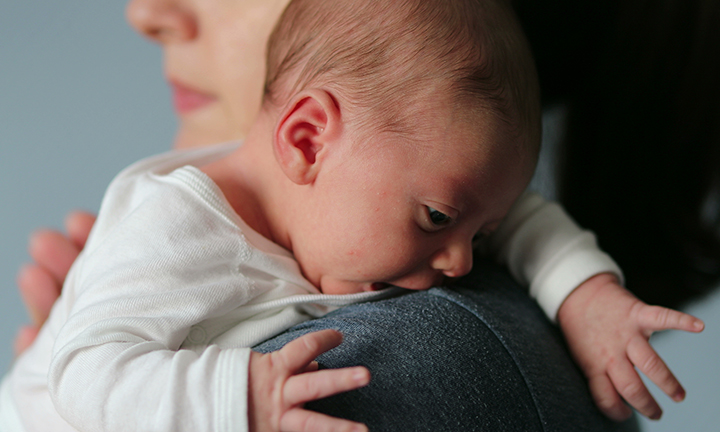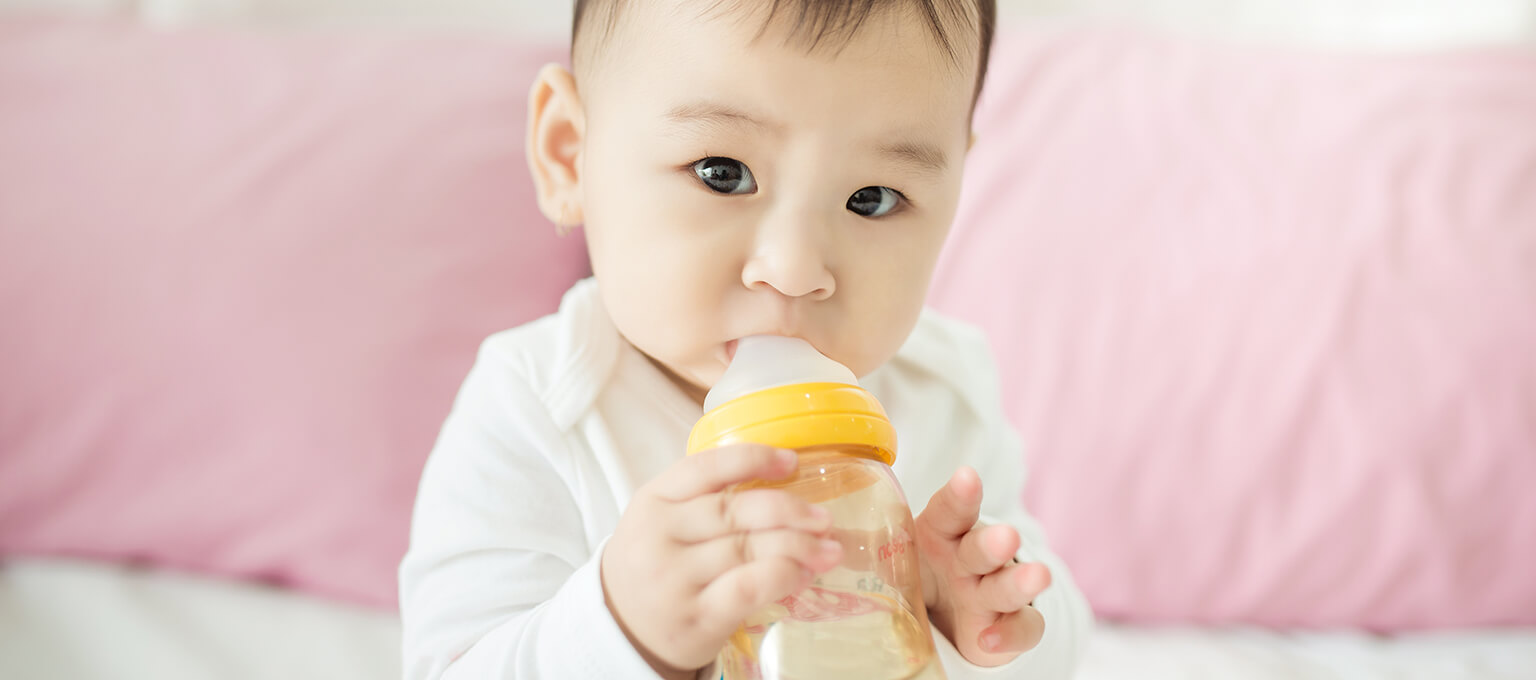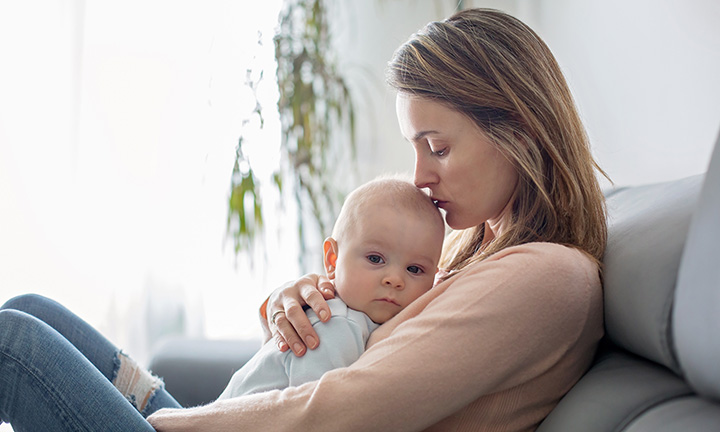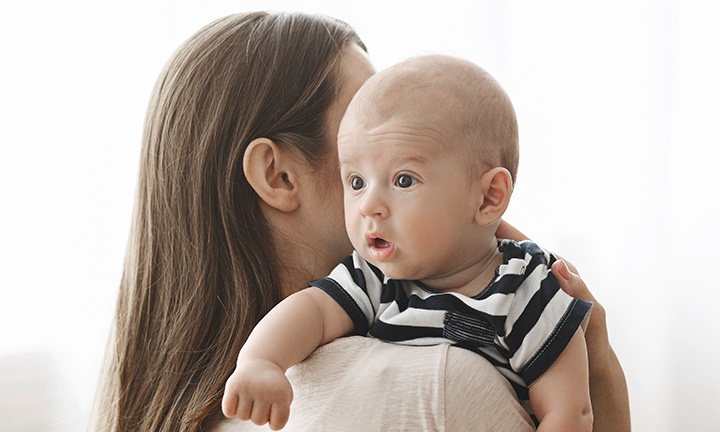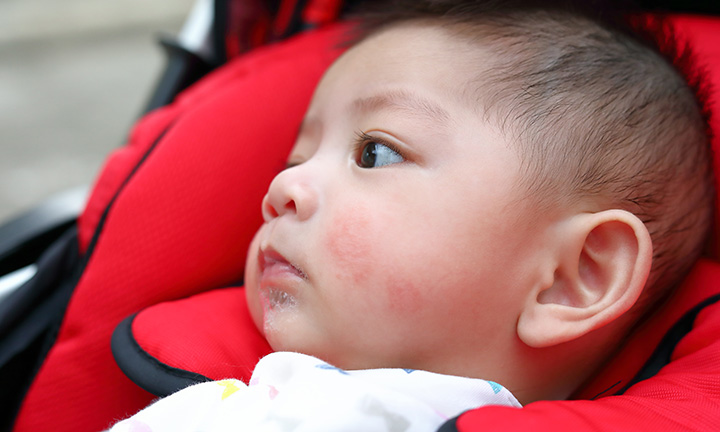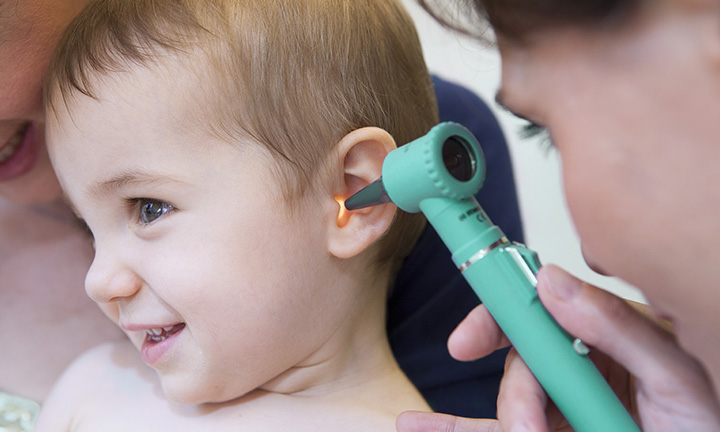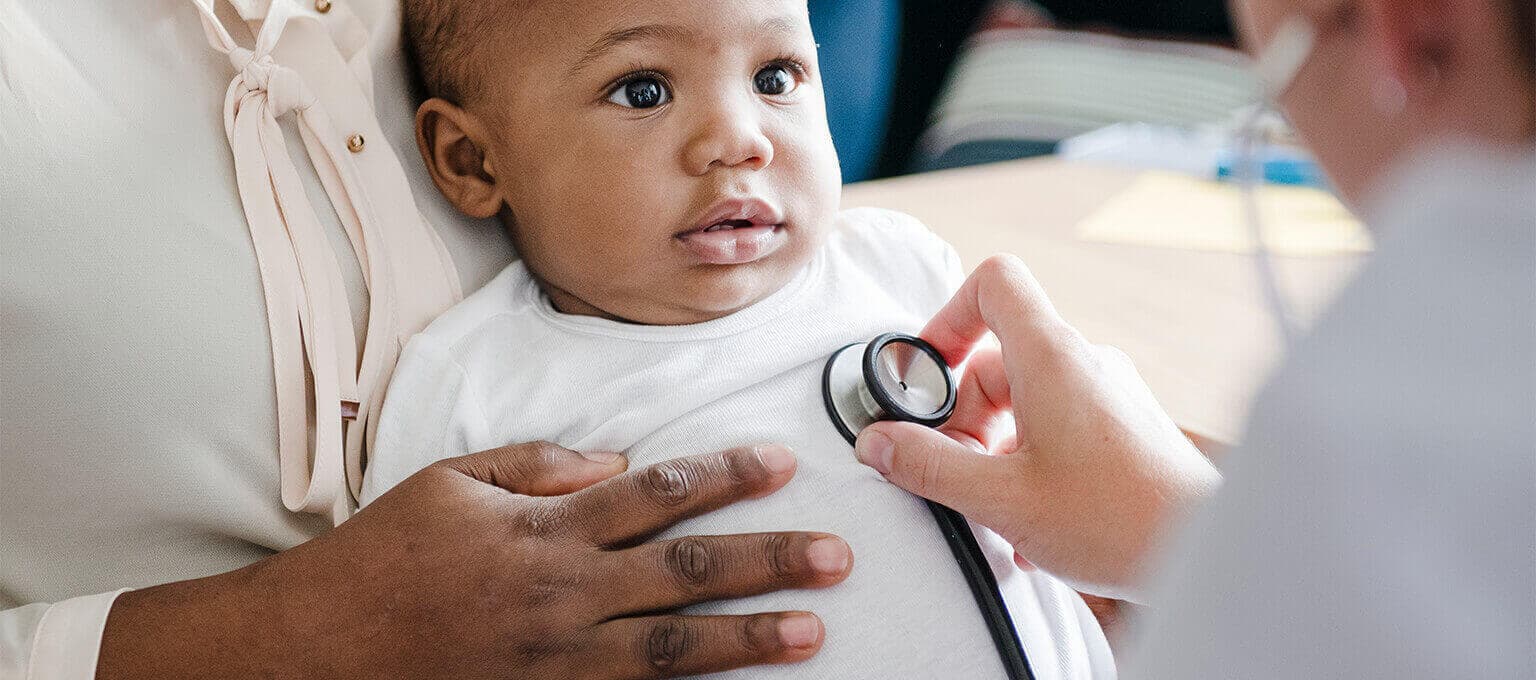
Pneumonia in Babies and Children


When your little one comes down with pneumonia, it's natural to feel worried. Fortunately, with proper treatment, this illness is no longer as dangerous as it might have been in your grandparents’ day. Most babies now make a full recovery. But what is pneumonia exactly, and what signs should you look out for? Keep reading to find out everything about pneumonia in babies, the various types, treatment options for little ones, and tips on preventing your baby from catching it.
What Is Pneumonia?
Baby pneumonia is an infection in the lungs that can make it hard or uncomfortable for your baby to breathe. It inflames the air sacs (known as alveoli) in the lungs, making it more difficult for them to transfer oxygen to the blood.
In more severe cases, some of the alveoli can become blocked by fluids generated as your little one’s body fights the infection.
What Are the Signs of Pneumonia?
It’s important to recognize the symptoms of pneumonia as soon as possible, so your baby can get diagnosed and treated without delay.
Call your healthcare provider immediately if you suspect your baby has pneumonia. Recognizing the danger signs of pneumonia in infants is crucial for prompt treatment.Here are some possible signs of pneumonia in your baby:
If your infant is under 2 months old, be especially alert for any signs of pneumonia in infants under 2 months, as symptoms can be more subtle at that age.
Pneumonia Causes and Diagnosis
Pneumonia is usually caused by a virus or bacteria, or in much rarer cases by fungi or parasites.
Sometimes a combination of different germs can be at play. For example, your baby’s immune system might be weakened by a virus, which makes it easier for a bacterial infection to take hold.
The two most common types of pneumonia in babies are:
Only your healthcare provider can determine what’s causing your little one’s pneumonia, so it’s essential to check any symptoms as soon as possible.
Pneumonia is usually diagnosed based on a physical examination, but an X-ray or blood tests might also be needed to gather more information about your little one’s condition.
Treatment of Pneumonia
It’s vital to have your little one checked out by your healthcare provider as soon as possible, as the different types of pneumonia may need different forms of treatment.
In most cases, treatment for pneumonia will take place at home. However, some babies may need to be treated in the hospital. Although pneumonia can be serious, especially in newborns, with prompt medical attention, the survival rate for pneumonia in newborn babies is high.
Bacterial pneumonia requires antibiotics, while pneumonia caused by a virus will often clear up after a few days without any treatment (apart from plenty of rest and fluids, and the fever medication recommended by your provider).
Because it’s not always easy for your healthcare provider to tell what’s causing your baby’s pneumonia, if there’s any doubt, the provider may prescribe an antibiotic just to be safe.
Always follow your provider’s instructions when giving your baby antibiotics or any other medicine, and make sure your little one takes the full course of antibiotics. Don’t stop early just because your baby seems better.
Avoid giving your baby a cough suppressant—like medicines containing codeine or dextromethorphan—if they have pneumonia, as coughing actually helps expel any fluids caused by the infection. It's also important to know that codeine and dextromethorphan have side effects that can harm children.
Make sure your baby gets plenty of rest and stays hydrated. Keep a close eye on your little one’s condition and go back for another checkup if you notice any signs that the infection could be getting worse or spreading.
When to Go Back to Your Healthcare Provider
Warning signs that the pneumonia is getting worse could include:
How Long Does Pneumonia Last?
The time it takes for your little one to start feeling better can depend on lots of things, including the type of pneumonia and how severe the infection is.
Pneumonia can clear up in one or two weeks with proper treatment, although a cough may linger for a few more weeks. In cases of pneumonia in babies, monitoring symptoms closely is crucial. Keep in mind, though, that a full recovery from pneumonia can take longer in more severe cases.
Is Pneumonia Contagious?
Although pneumonia itself is not generally contagious, the viruses and bacteria that can cause pneumonia may spread from person to person.
The infection causing pneumonia is sometimes transmitted through coughing and sneezing.
Sharing drinking glasses or utensils is another way of spreading germs, so don’t let anyone—especially other babies or older children—drink from your baby’s sippy cup or bottle, eat from their plate, or use their spoon. Likewise, don’t allow your baby to use other people’s utensils.
It’s a common myth that you can get pneumonia through exposure to cold air or by not dressing warmly enough. While infections like this are more common during colder times of the year, it's because children are often indoors and close together during the cooler months of fall, winter, and early spring, which increases the risk of spreading infections.
How to Prevent Pneumonia in Your Baby
You may not be able to completely rule out the possibility of your baby getting pneumonia, but there are plenty of things you can do to lower the risk.
Here are some ways to help prevent your baby from getting pneumonia:
Make sure all family members and caregivers are washing their hands regularly. An important way of lowering the risk of pneumonia in your baby is to keep up good hygiene habits. Above all, this means washing your hands frequently—and making sure that everyone else in your household does, too—because people often touch their eyes, mouth, and nose without even noticing.
FAQS AT A GLANCE
Fever, difficulty breathing, coughing, and a lack of appetite or energy can all be signs of pneumonia. You can read more about the signs of pneumonia. Call your healthcare provider immediately if you notice any of these symptoms.
The Bottom Line
Sickness is one of those challenges that you’re bound to face from time to time as a parent, but it’s natural to worry when your child gets an illness like pneumonia.
With any luck, knowing a bit more about this condition and how effectively it can be treated will put your mind at ease, and help you recognize the warning signs so that your little one receives treatment as soon as possible.
In most cases, it won’t be long before your baby’s back to health and you’ll be able to get on with enjoying the adventure that is parenthood.
And part of the parenting adventure, of course, is changing diapers. You'll want to choose a well-fitting diaper to keep your baby comfy and to prevent leakages and blowouts.
Our Diaper Size and Weight Chart will help you find the snuggest fitting diaper for your newborn, baby, or toddler. Those diapers could also be earning you Pampers Cash that you’ll be able to turn into savings! Download the Pampers Rewards App to find out how.
- American Academy of Pediatrics. Caring for Your Baby and Young Child: Birth to Age 5, 6th ed. (New York: Bantam Books, 2014).
- CDC. Pneumonia Prevention and Control
- CDC. Handwashing Facts
- Healthy Children. “Pneumonia.”
- Healthy Children. “Protecting your baby from a measles outbreak FAQs.”
- Kids Health. “Pneumonia.”
- Mayo Clinic. “Pneumonia.”
- World Health Organization. “Pneumonia.”
Read more about Baby
Related Articles
Join a World of Support
through Pregnancy and Parenthood.
TRACK WITH TOOLS
LEARN WITH EXPERTS
GET REWARDED
